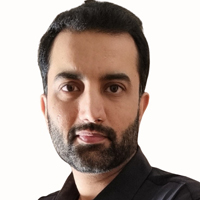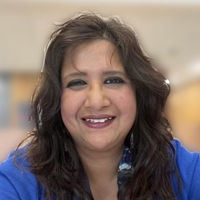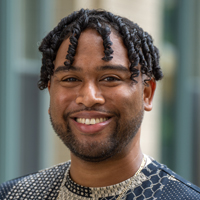Provost’s Inclusive Teaching Fellows
This program is being reimagined. Please stay tuned for more details in late spring 2026.
Sponsored by the Provost and administered by the Eberly Center, this program aims to help CMU courses reach all students. Fellows participate in monthly cohort meetings and collaborate regularly with Eberly Center consultants to (re)design a CMU course to:
- diversify the representation of voices in their disciplines,
- increase the prevalence of inclusive teaching at CMU,
- enhance students’ sense of community and belonging,
- generate and disseminate transferable teaching strategies, and
- promote inclusivity and belonging in CMU educational experiences.
Each project also includes collecting data to study its impact and guide future refinements. Fellows receive a $5,000 fellowship and are selected through a competitive application process.
Apply to be a Provost’s Inclusive Teaching Fellow
If you are thinking of applying but not sure where to start, for inspiration, please consider our websites on creating an inclusive classroom climate and how to enhance inclusivity and belonging in teaching. We also encourage you to schedule a meeting with an Eberly Center colleague to discuss your course and project ideas.
For questions about the fellowship or to request a meeting, email us at eberly-assist@andrew.cmu.edu.
2024-2025 Provost’s Inclusive Teaching Fellows
We are pleased to announce the 2024-2025 Provost’s Inclusive Teaching Fellows. The Fellows represent four CMU Schools and Colleges, the Pittsburgh and CMU-Qatar campuses, and a variety of undergraduate and graduate course formats.
See also previous cohorts of Provost’s Inclusive Teaching Fellows
College of Fine Arts
 Tommy Yang
Tommy Yang
Special Faculty in Architecture
School of Architecture, College of Fine Arts
Course: 48-105, Radical Empathy in Architecture
Goal: Foster empathy and collaborative reflection among beginning architecture students.
As the second core studio in the Architecture Program, this course nurtures a way of making and thinking in design that aims to cultivate the practice of architecture as an act of creative citizenship. My PITF project aims to develop a curriculum that allows students to embrace their backgrounds and individuality while learning the skills needed in architecture school. The studio will integrate workshops and conversations around the components of Iterative Architectural Process around Empathy by adding metacognitive reflections to help students learn introductory required skills. As part of this change, students cultivate values around “constructive feedback” through workshops. Students complete a series of short and long form reflections as well as one-on-one conversations to nurture dialogue about the first year designers' belonging, growth, and learning throughout the course. The studio fosters empathy as an important part of the architectural design process through all the workshops, community building, reflection, and proactive moments of constructive feedback. We forefront community, civility, and collaboration as much as the technical competencies of the discipline.
Carnegie Mellon University - Qatar
 Mohammad Aazam
Mohammad Aazam
Assistant Teaching Professor
Information Systems Qatar
67-301 Networks and Telecommunications
Goal: Reduce barriers for students to engage in a technical course.
This course concerns the technological details of networks and telecom (including wired and wireless), networking protocols, design elements, and deployment. Through PITF, I aim to acknowledge and address students' diverse backgrounds, experiences, and learning styles (including varying expectations of technical depth) while ensuring equitable access to learning opportunities. In the context of lab assignments, I will be implementing software which more directly models professional work while also reducing dependence on programming. Students will also get to see the real networking hardware used at CMUQ to connect the course material to real applications. This will hopefully allow more students to thrive and connect with the topic. To see if students are indeed more connected and supported, we are using a survey to ask about students' sense of belonging at the beginning and end of the semester. I am also including many ways for student voices to shape their learning experience, by creating space for discussion, accompanied by surveys and focus groups.
Dietrich College of Humanities and Social Sciences
 David Parker
David Parker
Assistant Teaching Professor of Russian
Languages, Cultures & Applied Linguistics (LCAL)
82-295: 20th Century Russian Literature
Goal: Present students with a diverse array of voices and foster mastery of literary analysis skills.
This course presents a survey of Russian and Soviet literature spanning the 20th century, where students explore original texts and documentary material to learn about life in all its extremes in the Soviet Union. My PITF project focuses on exploring the diversity and complexity of life under the Soviet Union in its fullness together with the students. The course syllabus will be expanded to include voices from "beyond the canon," including literature originally written in languages other than Russian. I am also reimagining the course to make reading, analyzing, and learning from literary texts a process that anyone at Carnegie Mellon can enjoy and excel at. The course assignments are also being reorganized around the concept of achieving mastery through component skills, where assignments throughout the semester will build upon each other towards a final project centered around close reading and literary analysis. To assess the impact of these changes, the course will include student surveys at the beginning and the end of the semester, as well as a comparison of the different components when presented initially as a stand-alone assignment and as part of the final project.
 Julie Pal-Agrawal
Julie Pal-Agrawal
Lecturer
English: Writing & Communications
76-101 Interpretation and Argument
Goal: Increase student sense of belonging in a conscientious research community.
This is a required class through the First Year Writing Program in which students learn to construct a relevant academic research contribution through careful reading, inquiry, and engagement with multiple existing perspectives. My PITF project seeks to use reflective writing to increase students' sense of belonging within their research process. Through assignments, students are invited to use research from their home communities, increase access to their research to communities outside of CMU, and utilize mindful research methodologies. We will examine a series of reflections and surveys to assess students' increased sense of belonging in their research processes and their understanding of researchers' responsibility to practice inclusive research practices. Through reflections on the research processes, students will hopefully feel they have a greater voice in shaping the types of researchers they wish to become.
 Kevin Jarbo
Kevin Jarbo
Assistant Professor
Social and Decision Sciences
88-285/685 Deconstructing and Dismantling Discrimination
Goal: Grow students' ability to work in and across disciplines to understand and promote policy solutions to social inequalities
In this seminar course, students will learn about theories and research in social psychology and behavioral science to develop an interdisciplinary understanding of the origins and effects of prejudice in US society. Students will apply their learning to critically examine major public policy issues to propose and promote policy solutions to address systemic discrimination and social inequities in a team project. My PITF project is designed to develop students’ understanding of interdisciplinarity in applied social sciences to more comprehensively address public policy issues where social inequality exists. My aim is for students to value their own distinct disciplinary approaches to social problems while fostering interdisciplinary perspectives, as individuals and as part of a team, through collaborative work on a team-defined project goal.
Every week, students will submit written reflections on their developing understanding of interdisciplinarity through a variety of assignments that include a weekly Piazza discussion board, 4 reflection papers, 1 theory application paper, and 3 self and team assessment surveys administered across the semester. In each assignment, students are prompted to examine a social issue from a social psychological or behavioral science perspective and then compare each to synthesizing a new approach that leverages the unique strengths of each discipline.
We are using a rubric to analyze students’ responses to Piazza discussion, paper, and assessment prompts across the semester. By prompting students to intentionally reflect on how they identify and approach complex problems from their own disciplinary perspective, they will develop a deeper understanding and appreciation of their discipline’s particular strengths and seek ways to incorporate the unique and complementary perspectives of another discipline into collaborative work toward a common goal.
 Seth Strickland
Seth Strickland
Lecturer
English: Writing & Communications
76-106 Writing about Literature, Art and Culture
Goal: coming soon
Project description coming soon
 Shihong Huang
Shihong Huang
Teaching Professor
Information Systems
67-336 Building Data Visualizations in to Information Systems
Goal: Increase awareness of socio-economic issues surrounding the use of data and technology.
This course explores the art and science of designing interactive data visualization, using lectures, hands-on exercises, and projects. My PITF project aims to promote inclusion by leveraging data visualization to enhance students’ cultural and socioe-conomic awareness, encourage responsible technology use, and empower them to apply technical skills in addressing social inequalities, ultimately driving positive societal impact.
To do this, students are asked to critically evaluate visualizations that highlight cultural and socioeconomic issues and their impacts. The assignments are designed to help students sharpen their ability to critique visualization designs and enhance their communication skills. For the final project, students collaborate in groups to create data visualizations that tell a compelling story about a social issue of their choice. The objective is to use visualization as a tool to raise awareness, deepen understanding, and inspire action on these issues. We assess the project’s impact by using surveys administered at the beginning and end of the semester to measure any changes in students’ sense of belonging. By using data visualization to explore cultural and socioeconomic issues, my PITF project fosters an inclusive environment where diverse perspectives are valued and social awareness is deepened.
Heinz College of Information Systems and Public Policy
 Jillian Stephenson
Jillian Stephenson
Assistant Teaching Professor
90723 - Financial Statements and Analysis
Goal: Increase student sense of belonging to make accounting accessible to more students.
This course is a core course for graduate students at Heinz to learn the fundamentals of accounting and finance, to empower them with the skills to make managerial decisions with financial data in their future careers. My PITF project aims to help the students feel confident in the material, since this content is an area where some students feel very insecure in their abilities. We are going to accomplish this through providing pre-work and post-work questions for the students in order to assess their learning through the course and discuss with classmates through think-pair-share activities at the end of each class. For students that are feeling less confident on the topic of accounting and finance, I am adding an anonymous question form for students to ask clarifying questions throughout the course if they are uncomfortable asking in front of the class. We are planning to assess this PITF project by comparing the exam scores for this course to prior year exam scores as well as using pre- and post-course surveys to capture students’ experience in the course and attitudes toward the discipline. I am looking to make accounting and finance more approachable through pre and post questions for students that typically think that this is something they either can’t understand or don’t want to understand to increase their sense of belonging in the classroom and the discipline itself.
College of Engineering
 Ding Zhao
Ding Zhao
Associate Professor
Mechanical Engineering
24-784 Special Topics: Trustworthy AI
Goal: coming soon
Project description coming soon